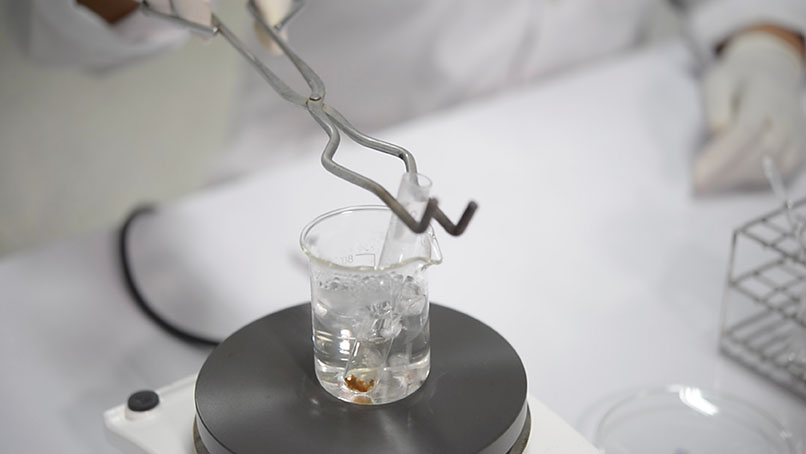

Boiling is a phase transition that occurs when a liquid is heated to its boiling point.
At the boiling point, the kinetic energy of the liquid molecules is high enough to overcome the forces of attraction between the molecules.
This allows the molecules to escape from the liquid state and enter the gaseous state.
The boiling point of a liquid depends on the pressure of the surrounding atmosphere.
The water reached boiling point.

Noun:
boil (a painful, pus-filled swelling on the skin).
Adjective:
boiling (at or near the boiling point).
Verb:
to boil (to heat a liquid until it reaches its boiling point).
to boil (to cook something in boiling water).
The word "boil" has an interesting etymology. It comes from the Old English word bōlan, which means "to bubble up." The Old English word bōlan is thought to be related to the Proto-Germanic word bōlōn, which also means "to bubble up.".
What does boil mean?
Question:
Define the term "boil" in the context of states of matter and explain the process of boiling for a liquid.
Answer:
In the context of states of matter, "boil" refers to the transition of a liquid into a gaseous state due to the absorption of heat energy. The process of boiling occurs when the temperature of the liquid reaches its boiling point, where the vapour pressure within the liquid becomes equal to the atmospheric pressure. At this point, bubbles of vapour form throughout the liquid, rise to the surface and escape into the surrounding air, causing the liquid to change into a gas.
Address
Developing Experts Limited
Exchange Street Buildings
35-37 Exchange Street
Norwich
NR2 1DP
UK
Phone
01603 273515
Email
hello@developingexperts.com
Copyright 2025 Developing Experts, All rights reserved.